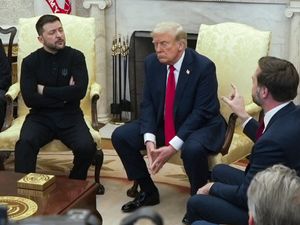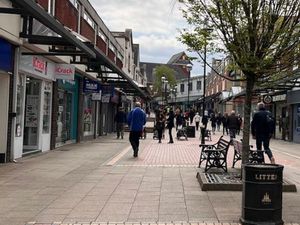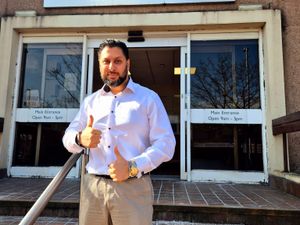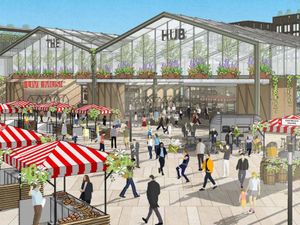Brexit referendum five years on: The vote that changed our country
When Nigel Farage uttered the words "the dawn is breaking on an independent United Kingdom", he probably didn't foresee the myriad of problems that lay ahead.
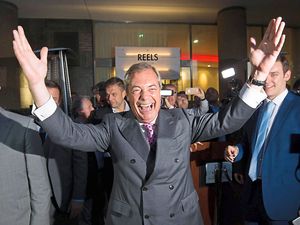
The then Ukip leader contributed more than most to Britain's departure from the EU, and for Eurosceptics across the country his triumphant speech of five years ago seemed like a watershed moment.
For the likes of Mr Farage and Vote Leave heavyweight Boris Johnson, stage one was complete and it was now down to the politicians to do their duty and forge a deal with the EU that could pass through the Commons.
No one could have predicted that it would take 60 truly miserable months for the shackles imposed by Brussels to finally be cast aside.
Months characterised by political infighting as parties fell apart and Parliament became impotent; 'Project Fear' scare stories predicting the imminent collapse of the UK's economy; court battles and protest marches as people snubbed their noses at democracy.
Families, like politicians, split into warring camps of 'Leavers' and 'Remainers'. Michel Barnier and Jean-Claude Juncker became household names, albeit ones that were often followed with a string of expletives.
As it turned out, winning the referendum had been the easy bit for Brexiteers, who defied the odds to get home by a margin of 1,269,241 votes.
It wasn't until the end of January 2020 that, after MPs had ratified the withdrawal agreement by a majority of 80, Britain finally departed the EU.
It had been one heck of a journey to get there, involving two general elections and leadership battles for both Labour and the Tories.
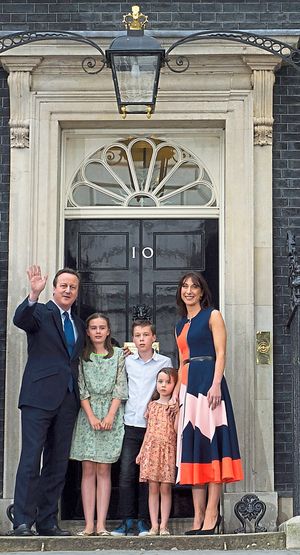
David Cameron, the bloke who started it all because he could not possibly countenance a Leave victory, immediately quit as PM and rather fittingly disappeared off to France.
Mr Johnson, who famously jumped on the side of Leave after briefly considering Remain, ended up in Number 10 via Theresa May's wild ride in the hotseat, which had seen Brexit caught up in a series of Westminster logjams.
In the most turbulent period in politics in modern times, reputations were destroyed and made.
Five years down the line, only now are we starting to get a picture of what the new global Britain of the future is likely to look like.
There's still a pandemic to get through, of course, but trade deals are being struck new legislation put before the Commons in a bid to ensure that as Mr Johnson has repeatedly promised, the whole country feels the benefit of Brexit.
Lichfield MP Michael Fabricant, a long standing Eurosceptic who campaigned for Brexit, said it was most notable that the devastation forecast by Remain supporters had never materialised.
"What has not happened are all the horror stories that were predicted," he said.
"Once Covid restrictions end we can go on holiday to Europe without a visa. We are still a part of European research programmes, and the British economy has not collapsed due to Brexit and is doing better – despite Covid – than most other western European nations."
Mr Fabricant said the freedom the UK had been given through the Brexit vote had been best illustrated by the success of the vaccination programme, which has seen more than 30 million people receive two doses of the jab, while France has less than a quarter of its population fully vaccinated.
He added: "For the future, I see our economic ties with other countries being strengthened, not only with Australia and the EU, with whom we have a free trade agreement, but also the Pacific Rim, where negotiations began yesterday.
"Britain was always a global trading nation and we have been held back for the last 45 years. Brexit has given us the wings with which we can fly."
Pat McFadden, the Labour MP for Wolverhampton South East, opposed Brexit on the grounds that it could damage Britain economically and hurt investment and jobs.
He has long since come to terms with the UK's departure from the EU, but hopes that as near neighbours the two trading blocs can develop a strong relationship over the years to come.
He said: "It feels more like ten years than five. But it has happened now and the country must try to make the best it can of life outside the EU.
"Five years on probably the most underplayed consequence was the effect on the union of the United Kingdom itself, with new trading barriers between Great Britain and Northern Ireland and a renewed push for Scottish independence.
"There have obviously been trade effects too with exports of food and drink to the EU falling 47 per cent.
"My hope, though maybe not expectation, is that we can reach some sort of normal relationship with the EU and that bad will and a blame game does not continue to colour every disagreement.
"Even though we are outside the EU it is still in the UK’s global and security interests to have a good relationship with our closest neighbours and with democracies similar to our own."
If recent events are anything to go by, it may take some time yet for such a bond to develop.
A row has escalated over the Northern Ireland protocol. Farmers and fishermen say the post-Brexit trade deal has shafted them, while fears abound that a trade war is brewing over sausages, of all things.
In a further portent of hostilities to come, EU bosses are even planning to cut the amount of British television and film shown in Europe, presumably meaning there will be less 'Allo 'Allo! reruns shown in France.
The future may be uncertain, but one thing is for sure.
Go back five years and ahead of the referendum, Star readers knew the score.
In a poll in this newspaper in March 2016, of nearly 8,000 respondents, 80 per cent backed a departure from the EU, with 63 per cent citing immigration as the biggest reason.
Tellingly, Mr Johnson was named as the politician most likely to influence their decision.

